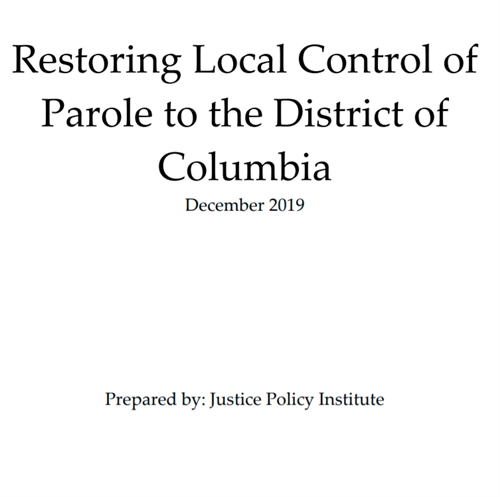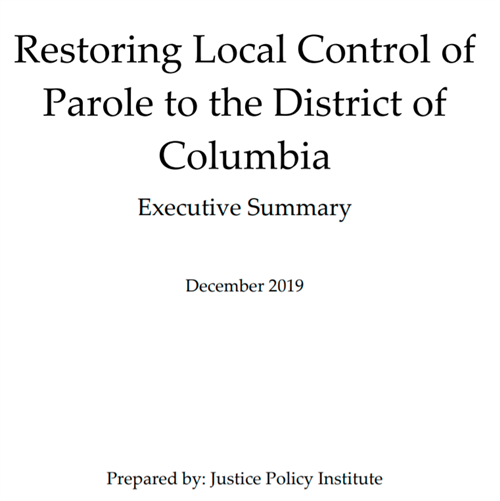The Justice Policy Institute is pleased to share our newest report, Restoring Local Control of Parole to the District of Columbia [Executive Summary here.]
In January 2019, the District of Columbia government enlisted the Justice Policy Institute to explore the feasibility of restoring local control of parole and make recommendations for how release decision making can be transferred from the federal government to DC government. Transferring supervision responsibilities and parole decision-making from the federal government back to the District is an ambitious, complicated undertaking. Fortunately, local leadership can draw on a wealth of data, evidence, and experience from other jurisdictions as they evaluate how best to move forward.
This new report highlights the best available research and practice in the parole field, provides 22 recommendations for parole decision-making and supervision, and outlines three options for restoring local control of release decision-making. JPI undertook a series of activities to produce this report. These included:
- Interviewing District and federal officials to understand how the current system functions and how best to build upon its strengths.
- Speaking with attorneys who handle parole applications to the United States Parole Commission.
- Attending community speak-out events and local criminal justice coalition meetings to solicit input from a wide range of community and system stakeholders, including currently and formerly incarcerated people with experience in the District’s parole system.
- Consulting with experts from multiple organizations that provide technical assistance to help states improve their parole practice, including attending the 2019 Association of Paroling Authorities International Chairs Meeting and Annual Training Conference in Baltimore, Maryland.
- Examining a broad array of research in academic peer-reviewed journals, technical white papers, and state agency reports.
The recommendations outlined in this report should guide the development and staffing of a new parole board, the criteria for release decision-making, and how individuals are supervised in the community. If the District follows this plan, we believe it has the opportunity to serve as a model jurisdiction for other states. We also hope the report can be useful for jurisdictions currently considering reforms to their parole systems.

